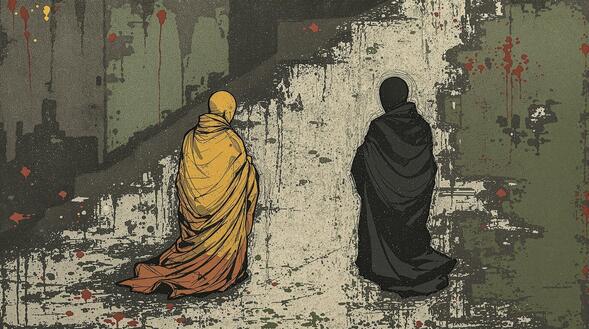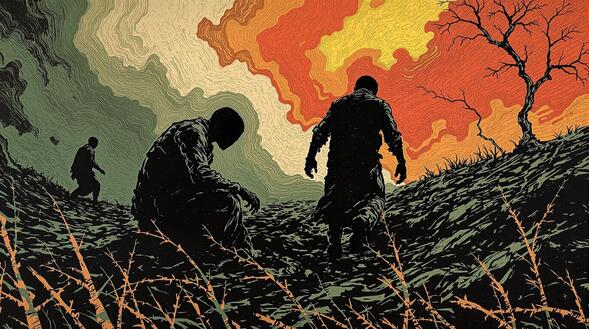In this chapter, Zarathustra delivers a critical discourse on various individuals who, disillusioned with life, advocate for its denial or cessation. He asserts that the world is replete with those who must be turned away from life, as they themselves preach withdrawal from it.
Zarathustra refers to these individuals as “preachers of death”, highlighting their disdain for existence and their encouragement of others to forsake life. He alludes to them metaphorically with colors such as “Yellow” and “Black”, possibly referencing religious ascetics or clergy—like Buddhist monks in yellow robes or Christian priests in black cassocks—who promote life-denying doctrines. Throughout his discourse, Zarathustra portrays several archetypes of these death-preachers.

‘Yellow’ ones: thus one calls the preachers of death, or ‘Black’ ones. But I will show them to you in other colors.
He describes the “Fearful Ones”, individuals who carry a predatory beast within, torn between destructive desires and self-mutilation. Lacking the capacity to become fully human, they are consumed by inner turmoil and advocate for a departure from life. He then speaks of the “Consumptives of the Soul”, those who begin dying as soon as they are born, yearning for teachings of weariness and renunciation. They desire death and should be allowed to fulfill this wish without interference.
In a possible allusion to the Buddha, Zarathustra criticizes those who, upon encountering sickness, old age, or death, declare that life is refuted. He contends that it is they who are refuted, as they perceive only a singular aspect of existence.
Others are enveloped in deep melancholy, longing for minor accidents that might bring death, enduring life with gritted teeth. Yet others mock life by indulging in trivial pleasures while deriding their own childishness, clinging to life and simultaneously mocking their own attachment to it.
He addresses individuals who proclaim that life is only suffering, teaching the moral of self-annihilation and escape from existence. There are those who deem pleasure sinful and suggest refraining from procreation to prevent bringing more sufferers into the world. Others, under the guise of compassion, offer everything they have to lighten their own burden of life.
Zarathustra also speaks to those for whom life is wild toil and unrest. They engage in frantic activity as a means of escaping themselves, lacking the capacity for patience or true idleness. Their industriousness is a form of self-forgetfulness, indicative of their weariness of life and receptiveness to the preaching of death.

And you too, for whom life is frenzied labour and unrest: are you not very weary of life? Are you not very ripe for the preaching of death?
Throughout the chapter, Zarathustra emphasizes the pervasive presence of these preachers and suggests that the world is filled with individuals to whom death—or the concept of “eternal life” as a form of escape—must be preached. His tone is critical and exhortative, urging that such individuals hasten their departure from life, through embracing death or otherworldly promises.
